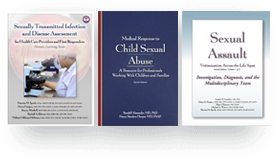The Pervasive Struggle with Adolescent Mental Wellness
The mental health condition of adolescents is an increasingly alarming issue and recent studies have added damning data to the picture of mental wellness amongst youth. According to the World Health Organization, globally, one in seven people between the ages of 10 and 19 experience a mental disorder. The statistics are staggering and do not show signs of improvement in recent years. The CDC recently published findings from a 10 year time span dating from 2011 to 2021. The focus area regarding mental health has the worst results. Adding to the factors affecting mental health is the impact of COVID-19, which has had a drastically negative impact on mental health outlook for adolescents. In order to help change the trajectory of this growing concern, education and awareness is critical. It is with this in mind that STM Learning seeks to provide resources and information regarding the topic of adolescent mental wellness.
CDC Youth Risk Behavior Survey
The CDC recently published a survey with data related to adolescent health and well-being among high school students in the United States from 2011 through 2021. Four focus areas are included in the survey: Sexual Behavior, Substance Use, Experiencing Violence, and Mental Health & Suicidality. Within the Mental Health & Suicidality focus area, none of the variables included were found to be improving. In terms of all variables measured throughout the survey, this focus area also had the worst results out of any others. This data shows that the percentage of students across every racial and ethnic group had an increase in feelings of sadness and hopelessness. 60 percent of female students, and almost 70 percent of LGBTQIA+ students reported these symptoms. The results of this survey confirm quantitatively the critical state of adolescents and mental health.
Where Does COVID-19 Come in?
It goes without question that the COVID-19 pandemic has exacerbated multiple preexisting issues across the globe. Among those, COVID-19 has had a significant and negative effect on adolescent mental health. With new stressors, as well as the intensification of existing stressors, access to mental health resources has also been impacted. An article published by the National Center for Biotechnology Information, through the National Institutes of Health, details the varying determinants affecting the impact of COVID-19 on different demographics. For example, factors including treatment outcomes and care accessibility for racial and ethnic minorities, as well as families with financial barriers, were found to result in a higher negative impact even with the changes in the way treatment is administered. COVID-19 has not only changed the prevalence of mental health problems, but also the resources available to address these problems and the way resources can be accessed.
World Teen Mental Wellness Day
 March 2, 2023 is World Teen Mental Wellness Day. The holiday was created by Hollister Co. in 2020 as part of the Hollister Confidence Project, which operates through the Hopewell Fund, a 501(c)(3) charity supporting innovative projects that help make a difference in the community. Hollister donates funds to different organizations every year to help raise awareness and provide resources related to mental health, equality, environmental challenges, and more. Information regarding grants and how to contribute is available on Hollister’s website. Utilizing this day to bring awareness to the importance of adolescent mental health is just one way to make a difference.
March 2, 2023 is World Teen Mental Wellness Day. The holiday was created by Hollister Co. in 2020 as part of the Hollister Confidence Project, which operates through the Hopewell Fund, a 501(c)(3) charity supporting innovative projects that help make a difference in the community. Hollister donates funds to different organizations every year to help raise awareness and provide resources related to mental health, equality, environmental challenges, and more. Information regarding grants and how to contribute is available on Hollister’s website. Utilizing this day to bring awareness to the importance of adolescent mental health is just one way to make a difference.
Forthcoming Book on Mental Health
STM Learning recognizes how imperative it is to raise awareness and access to mental health resources. Education regarding adolescent mental health and the factors affecting it is vital to the progression of improvement in the area. Our published resource, Mental Health Issues of Child Maltreatment is available both in print and as an eBook. Check it out here. Our forthcoming update to this resource, Mental Health Issues of Child Maltreatment: Contemporary Strategies, includes new information and research, including a chapter focused specifically on COVID-19 implications. Other chapters are dedicated to relevant research on those in the LGBTQIA+ community, Bullying and Cyberbullying, Eating Disorders, and Suicide. This text not only serves professionals in health-related fields, but also students and anyone working with children and adolescents.
This blog was written by STM Learning’s editorial staff for educational purposes only. It is not intended to give specific medical or legal advice. For expert information on the discussed subjects, please refer to STM Learning’s publications.







